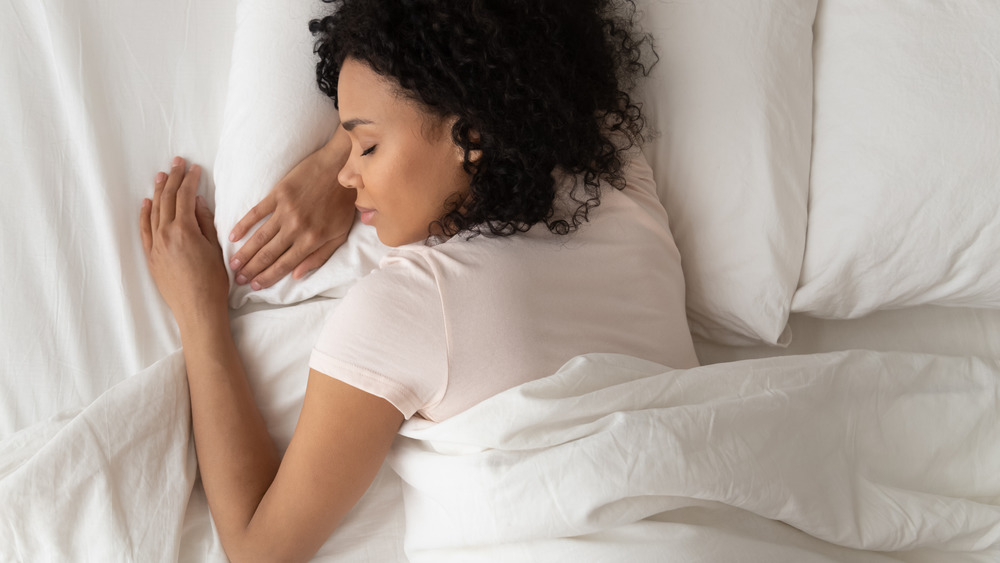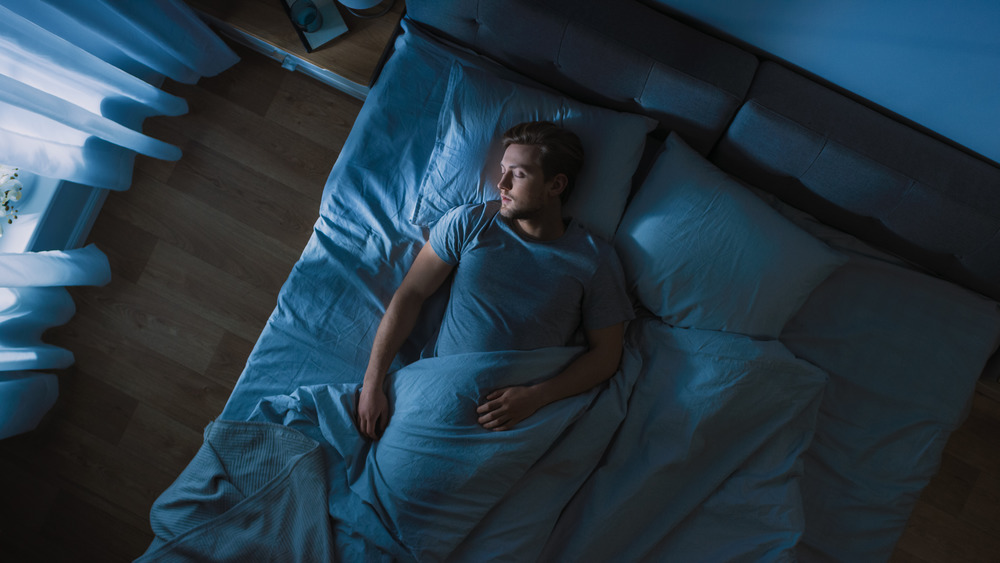What It Means For Your Body When It's Too Hot To Fall Asleep
If you're struggling to fall asleep, it might not be stress keeping you up at night: You might be sleeping in a room that's far too warm for optimal sleep. Even as temperatures drop outside, you might find that you're sleeping worse than ever, and it has everything to do with your body's ability to regulate heat while you sleep. You've probably cranked the heat in your house during the day to stay warm, but unless you dial the thermostat down and cool your bedroom before heading to bed, you might be in for a rough night.
While getting enough sleep is critical to your health, getting quality sleep is equally important. And poor sleep quality can even lead to an increase in body mass index, according to recent research. So it's critical to set up your bedroom correctly. Your goal should be to create a "quiet, dark, cool environment. All of these things promote sleep onset," Dr. Karen Carlson, associate professor of medicine at Harvard Medical School, told Harvard Health Publishing.
Set your bedroom up for sleep success
Warmer temperatures can cause discomfort and restlessness, according to the National Sleep Foundation (NSF). That's because as we sleep, our core temperature should naturally begin to drop — but in a warm room under a cozy duvet, our bodies struggle to lower the temperature. "Our internal clock, or circadian rhythm, is controlled in part by the temperature of our external environment," sleep medicine specialist Dr. Joshua Roland, told Well+Good, adding, "If our external environment is too warm, in addition to us being sweaty and uncomfortable, we can also potentially throw off our internal drive to sleep." He added that raised body temperature can lead to missing out on critical REM sleep cycles (via Well+Good).
To stay at the right temperature throughout the night, the NSF recommends keeping your bedroom at between 60 and 67 degrees Fahrenheit, which may mean turning down the heat in that room or even cracking a window in the hour or two before you head to bed (via NSF). (You can even consider sleeping naked rather than snuggling under the covers in full-length fleece pajamas to cool down even more.)
In the summer, it may not be possible to get your bedroom temperatures that low without overextending your budget on air conditioning, and in those cases, the American Academy of Sleep Medicine recommends adding a fan to your bedroom, blackout blinds to keep sunlight out and temperatures down, and swapping out your winter sheets and blankets for lightweight linen.


